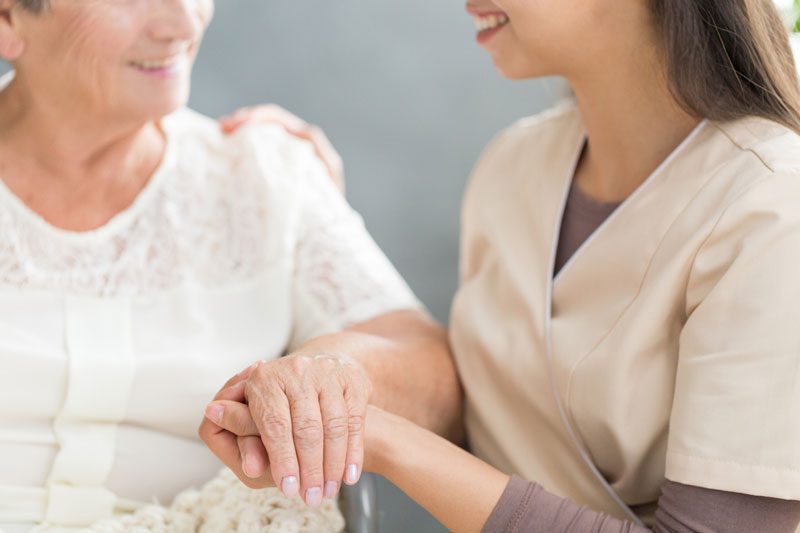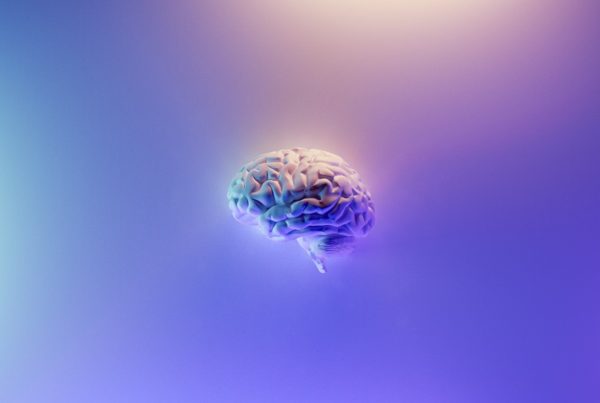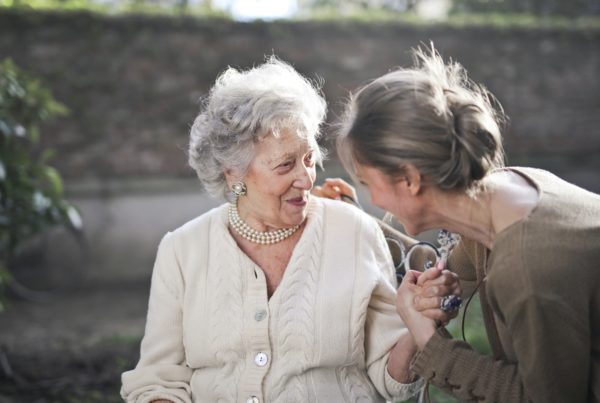By understanding the different stages of dementia you will be better prepared to look after your loved one as their illness progresses.
Stage 1. Memory loss and confusion
One of the first signs of dementia is memory loss and confusion. This may include getting words and names muddled and mixing-up everyday tasks (such as forgetting to put the right food in the fridge).
You’ll find that during the early stages of dementia your loved one will still be able to hold conversation, but as you’d expect they may become anxious or frustrated. Therefore it’s important that you don’t highlight mistakes. It’s also beneficial to avoid asking open questions and to use real names for objects to limit their confusion.
Stage 2. Behaviour changes
You’ll notice that as your loved one’s illness progresses behavioural changes will become more evident. They may start to feel frightened or frustrated and as a result may be inclined to lash out, either verbally or physically.
Your loved one may also start to need support to ensure they eat regular meals and maintain their appearance.
At this stage it’s important to remember, that although you may find these behaviour changes challenging, they’re simply a result of your loved one feeling upset or insecure. So if you can, try to help by:
- Making them feel in control – why not ask them to help with basic tasks around the house, such as folding laundry
- Being patient and understanding – avoid contradicting and avoid speaking as if they weren’t there.
- Speaking clearly and directly – use clear concise instructions and language
Stage 3. Losing touch with the present
Losing grip on the present is a common characteristic in the latter stages of dementia. Your loved one will often retreat back to another time, perhaps to when they were younger, and as a result may they become confused by faces and places.
This advancement in their condition makes it increasingly difficult for your loved to remain independent and perform daily tasks. And as a result they will become more dependent on others for their care.
To help reduce anxiety during this stage it is important that you continue to avoid contradicting mistakes and instead “join their world”. Using a dementia box, which contains familiar faces and items from their past can also be beneficial during this stage.
A commonly held belief is that dementia changes personality. However in reality dementia affects a person’s memory and ability to process language, and as a result their behaviour changes. Because you know your loved one best, you will be best placed to create a connection with them – understanding what past memories to use for reminiscing, which songs will bring back fond memories and knowing which hobbies and activities will naturally interest them.
Stage 4. Physical Decline
When dementia is in its severest stage your loved one will have lost the ability to physically care for themselves. And as a result you may find it’s no longer possible to take care of them yourself at home.
During this stage, although your loved one will no longer be able to communicate with you, you can still make a connection with them and you may find that your physical presence alone will make them feel less anxious.
Non-verbal communication – such as giving a hug or holding your loved one’s hand – is the most effective way of connecting during this stage. And it’s still important to maintain eye contact and be on the look-out for visual signals of how your loved one’s feeling, whether its a wry smile or a look of confusion – as this will be the best indicator of how they’re feeling.




